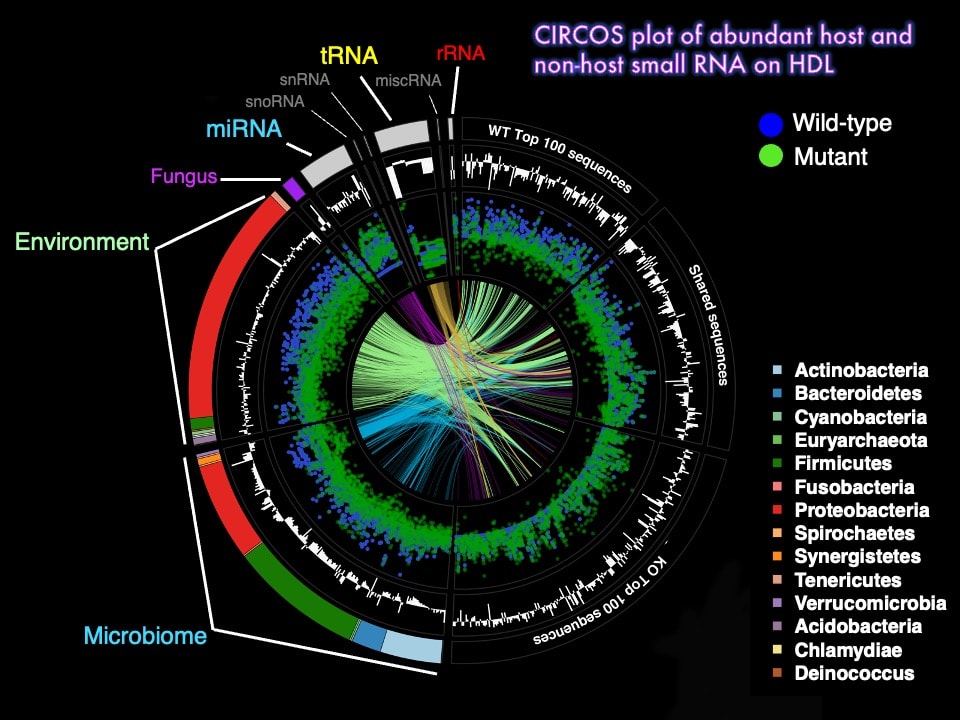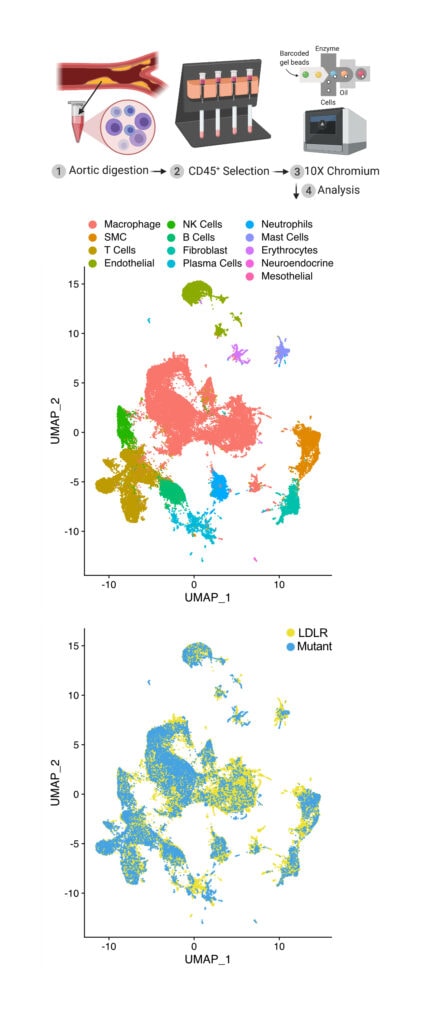
Assistant Professor
Department of Physiology and Cell Biology
University of Arkansas for Medical Sciences
4301 W. Markham St., #505
Biomed-2 Building, Room 261-2
Office Phone: 501-686-7160
Email: rmallen2@erparker
Currently accepting new students
Education
- Ph.D. Saint Louis University (mentor Angel Baldán)
- M.S. Arkansas State University (mentor Ronald L. Johnson)
- B.S. Arkansas State University
Overview
My lab uses informatics, high-throughput sequencing, in vitro, ex vivo, and in vivo models to study the link between lipoproteins and inflammation in cardio-metabolic disease.
Allen Lab Research Interests
Our laboratory explores the patho-physiological roles lipoproteins play in human health and disease. Low-density lipoprotein (LDL) and high-density lipoprotein (HDL) transport cholesterol throughout the body and are intimately associated with development of, and protection from, atherosclerotic cardiovascular disease (ASCVD), respectively. Lowering LDL-cholesterol is a primary intervention for ASCVD that is achievable for many, thanks to drugs like statins; however, most heart attacks now occur in patients with ‘normal’ cholesterol levels. Systemic inflammation is widely believed to be responsible for residual risk in ASCVD patients, but there are currently no FDA-approved therapies to treat or prevent inflammation in ASCVD. This highlights a critical gap in knowledge of the causes of inflammation in ASCVD. Our recent work has found that lipoproteins also transport small RNA likely to come from the host (e.g., microRNA, tRNA and rRNA fragments), but overwhelmingly are linked to microbiota from our environment (e.g., bacteria, fungi, algae). Importantly, microbial small RNAs are recognized by the immune system and capable of triggering inflammatory activation networks that are a hallmark of ASCVD, but also many other chronic diseases, such as diabetes, cancer, lupus, arthritis, osteoporosis inflammatory bowel disease, and chronic obstructive pulmonary disease. Therefore, the overall focus of our lab is the understanding of how changes in lipoprotein metabolism, and their transport of microbial small RNA, contribute to chronic inflammation in ASCVD and beyond. We use a combination of high-throughput small RNA sequencing and state-of-the-art bioinformatics to define changes in lipoprotein-small RNA profiles of humans and mice, as well as bulk and single-cell RNA sequencing to investigate the impact of lipoproteins on immune cell phenotypes. We also use in vitro, ex vivo, and in vivomodels to test hypotheses for the molecular mechanisms of ASCVD and other diseases. The goal of this work is to identify and evaluate therapeutic targets for the treatment and prevention of chronic inflammation that can be leveraged to improve health and prevent disease in humans.
Research Links
Lab Members
Seeking graduate students and post-docs
Lab Images



